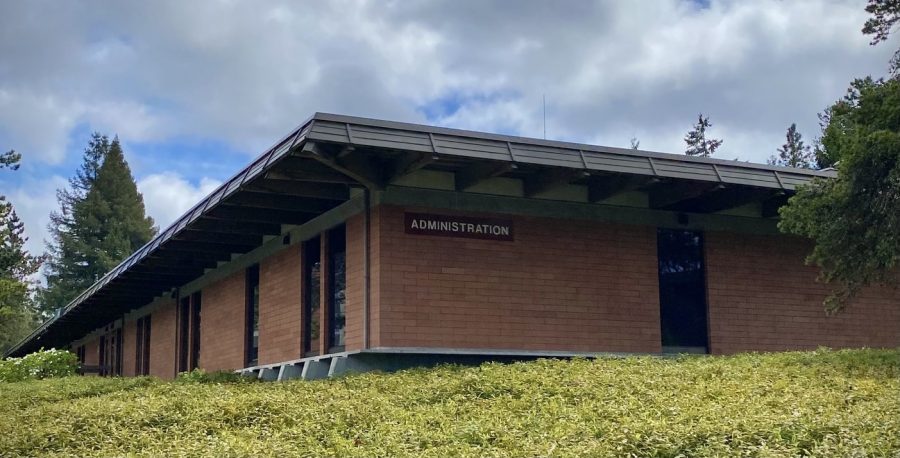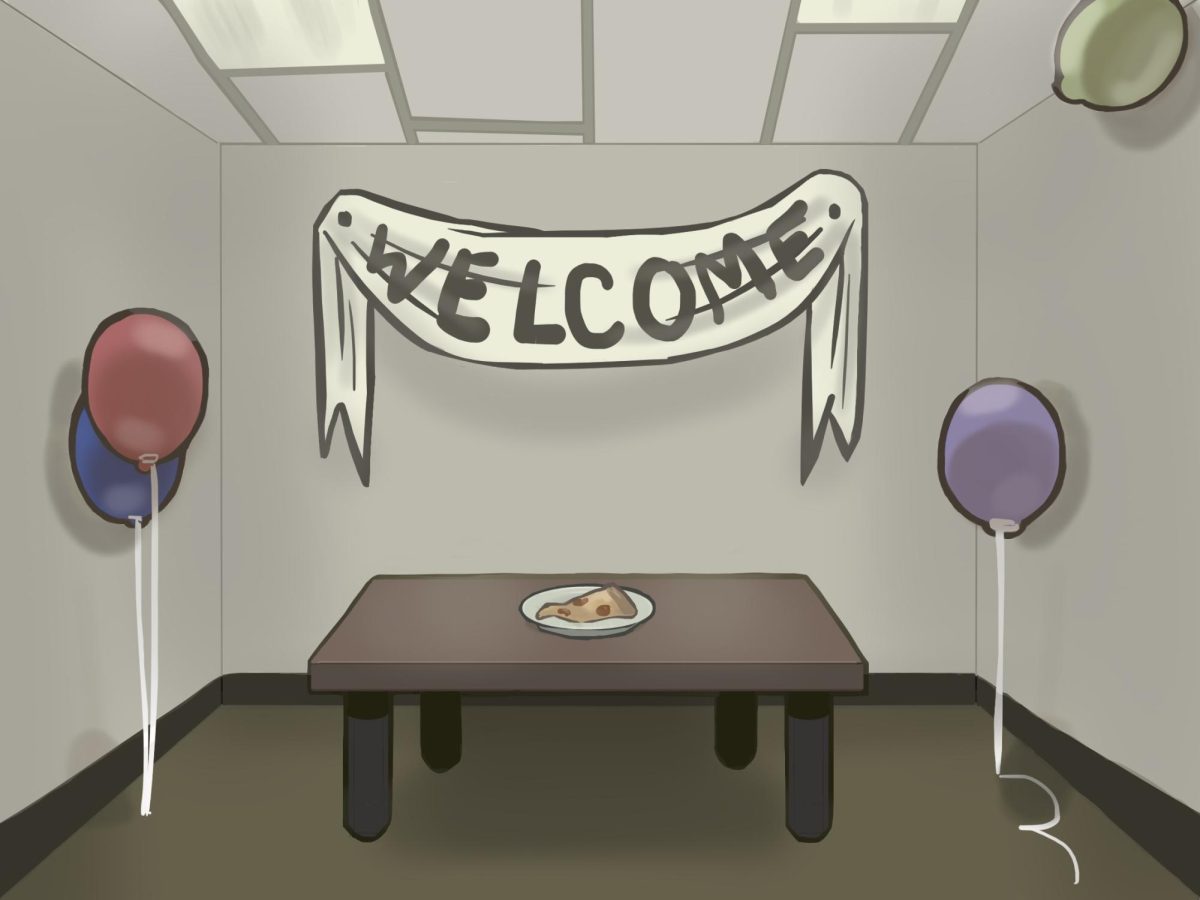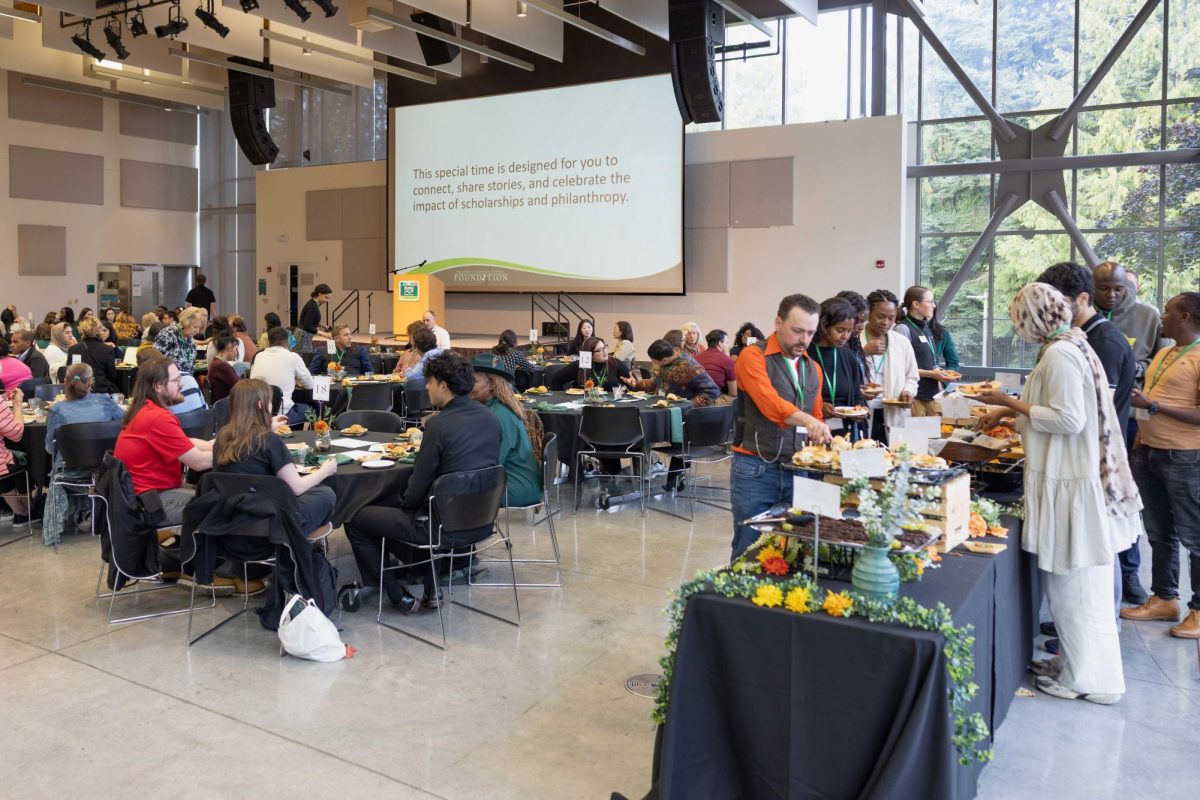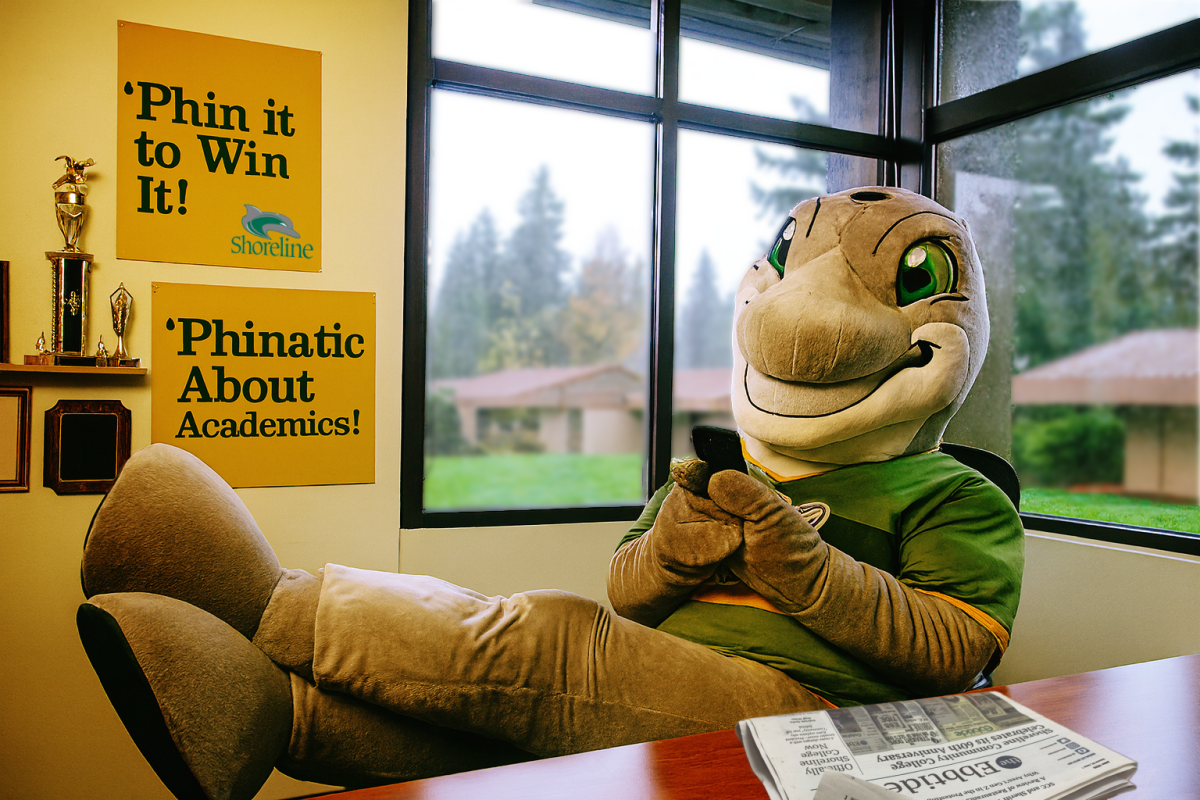SCC’s Administration and Faculty Conflict: A Digest
Unfair labor practice case ongoing
SCC’s administration building, photographed April 30, 2021.
June 11, 2021
SCC President Roberts has presided over significant financial decline and budget deficits during her tenure, and faculty and staff alike have felt the effects.
The decline has occurred over a period characterized by cuts in state education funding, caused in part by the COVID-19 pandemic; and direct consequences of the pandemic such as a statewide college enrollment decline and the limitation of international student stays.
The shortfalls have also led to conflict with the college’s constituencies.
In February, the SCC faculty senate council held a vote of no confidence against Roberts. 85% of the voting faculty found “no confidence” in the president, while less than 7% voted “confidence,” according to a March 5 email sent to faculty by faculty senate Chair Tom Genest.
The vote’s resolution addresses three main topics: The claim that Roberts lacked “responsible financial oversight”; an unfair labor practice filed against the college; and the faculty senate council’s concerns about managerial decisions, such as the college’s hiring process and funds spent on new buildings.
Financial Troubles
The college has seen three rounds of layoffs over the past two years, with 12 to 13 full-time faculty positions being cut, The Ebbtide previously reported.
During Roberts’ tenure, the funds spent on administrative positions have increased by 76%, according to the vote of no confidence resolution. In an April 28 interview with The Ebbtide, Genest speculated this was in an attempt to keep students.
“I think their intention with increasing spending on administrative positions was to boost retention but it just didn’t work very well,” Genest said. Still, he acknowledged that a number of faculty had expressed frustrations with the college spending money on administrative positions while simultaneously reducing class sections.
Note: The reduction of class sections is affected by student enrollment numbers.
SCC’s financial situation also impacts students. “A college’s purpose is its students and so, when we are having to make budget cuts whether out of necessity or not, those things are going to inevitably affect our students and the kind of education they receive,” ASG President Sunshine Cheng said in a May 27 interview with The Ebbtide.
Unfair Labor Practice
In 2017, the SCC Federation of Teachers union raised an unfair labor practice complaint against the SCC administration with the state labor board. The Washington state Public Employees Relations Commission examiner assigned to the case found the college administration to be in violation of three codes, and ordered the college to take action against those violations.
The SCCFT had previously bargained with the college on increasing the salaries of certain employees. The college later decided to increase compensation of more employees than previously agreed upon without allowing an opportunity for the union to bargain again.
The first violation found by the PERC examiner was that the college violated its good faith bargaining standards by refusing to bargain with the SCCFT when deciding to change its methods of determining faculty compensation, and when increasing the total amount of funding allocated to faculty. The second count recognized that the college made the changes unilaterally.
Finally, the third violation found the college had refused to provide the SCCFT with information relevant to the compensation methods when requested.
According to the vote of no confidence resolution, many of the additional faculty given compensation by the college “were not hired back,” which led to the college regaining some of the allocated funds.
After the examination, the SCC administration appealed to the PERC. The college asserted that the SCCFT’s complaint was invalid because the union had not attempted to bargain with the administration before raising the complaint, as per their collective bargaining agreement. On Jan. 16, 2020, the PERC decided in favor of the college, reversing the examiner’s order and declaring that the case was not under its jurisdiction and instead “should be deferred to arbitration.”
In a May 6 interview with The Ebbtide, SCCFT President Eric Hamako noted that the case was “relatively unprecedented” for two reasons: The PERC had ruled over cases like this in the past, and the three-person commission board dissented in a rare 2-1 split.
“PERC set a dangerous precedent that could affect public sector unions across Washington State,” Hamako wrote regarding the commission’s ruling in an email June 8. The decision means that if a public sector union were to enter its legal rights in a contract, those rights subsequently must be met through the contractual process instead of the legal process.
The faculty union appealed the decision and presented oral arguments against the PERC’s ruling June 9.
Board Response
On Feb. 25, board of trustees Chair Catherine D’Ambrosio published a response to the vote of no confidence. The day before, Hamako had presented the results of the vote during a board meeting in place of Genest, who had requested speaking time but was denied.
D’Ambrosio wrote that the board “received, carefully listened to, recognized, and heard” the vote of no confidence report, but could not accept it due to it being “based on entirely too many inaccuracies.”
Additionally, D’Ambrosio linked to a board statement in her response that claims “85% of the college’s revenues are used to support faculty and staff” and that 6% of the college’s budget goes toward administrative costs; a figure that is “in alignment with all colleges in the state.” The document also notes that SCC allocated the most revenue to faculty out of all colleges statewide in 2019, according to a Washington State Community and Technical Colleges expenditures report.
Genest responded to the statement in a March 5 comment to the board, writing that it “focused on facts that didn’t address the concerns of faculty.”
In the April 28 interview with The Ebbtide, Genest went on to say “If the college spends a couple percent more, let’s say, on faculty than the college next door, that doesn’t mean that what was published in the report is not important — the point of the report was to show the college’s financial management and the decisions they made.”
Campus Involvement
If there’s one thing the college administration and constituencies seem to agree on, it’s working together — although they may not agree on the “how.”
“The Board of Trustees cannot effectively execute the responsibilities entrusted to us without full participation and collaboration between each and every one in the Campus Community,” D’Ambrosio wrote in her Feb. 25 statement. “Please know that your Board of Trustees remains committed to working collegially and constructively with the President and the entire Shoreline Campus Community to serve our diverse students and community,” she wrote.
On May 6, Hamako, Cheng and Paul Fernandez, Washington Federation of State Employees Local 304 Chief Shop Steward, sent a joint letter to the board requesting involvement in the selection process of an interim president. The board has yet to respond to the letter, Hamako told The Ebbtide in a June 8 email.
A June 1 notice posted to the SCC blog Day at a Glance announced that the board is “reviewing options for how it will conduct an interim and a permanent presidential search and solicit input from the campus community.”
The board of trustees also has a vacant position after its Vice Chair Douglass Jackson announced he would be stepping down due to personal circumstances. *Update June 20: The state’s Office of the Governor has appointed Rebecca Chan and Kim Wells as trustees.*
Cheng hopes to see the appointment of a student trustee. “If we want to be student-centered about our college’s vision and mission, that is student representation at its highest form,” she said. The board of trustees has yet to respond to her request.
Despite their lack of collaboration, the college’s constituencies seem to have made an impact on the board’s decisions. “I think that our two unions and the student government and community organizations definitely can look at many of the things we’ve done to try to press the college to change its ways, and know that we played some role in that even if the role may be unknown,” Hamako told The Ebbtide.
“I think it’s been important that students, classified staff and faculty have been working together and building solidarity to try and help each other identify and address some of the problems in the college’s leadership; I think we have been stronger and more effective for it.”
The Ebbtide reached out to D’Ambrosio and Fernandez for comment but was unable to make contact.
A May 26 statement to the board of trustees by Fernandez can be read here.








Josh Groom • Jul 3, 2021 at 4:20 pm
Absolutely incredible reporting here Emma. Wish I was still around to be in the meetings for this one.